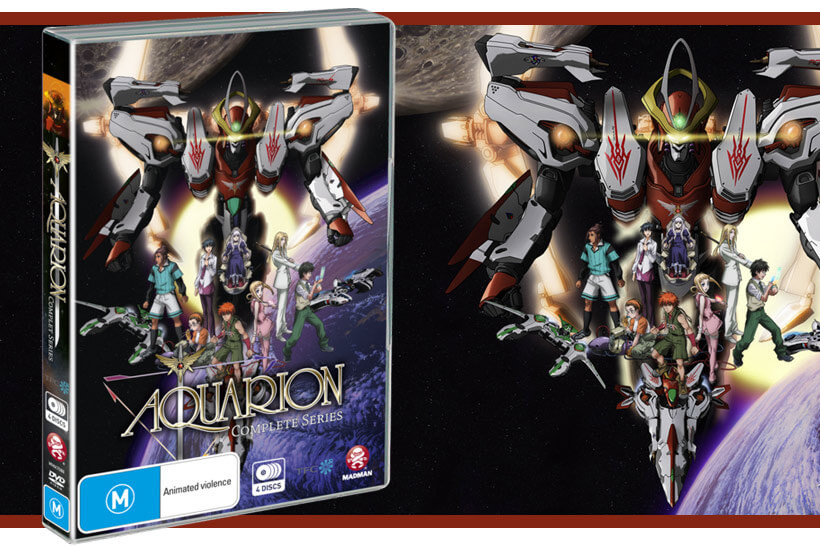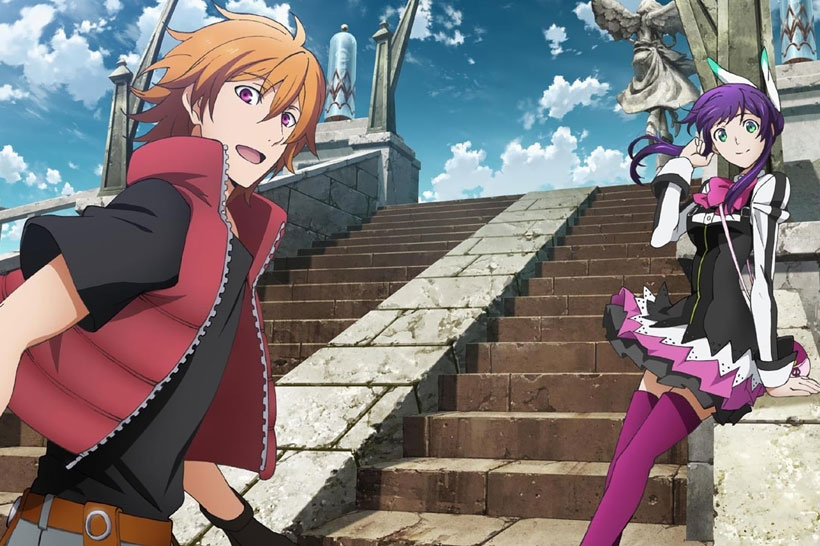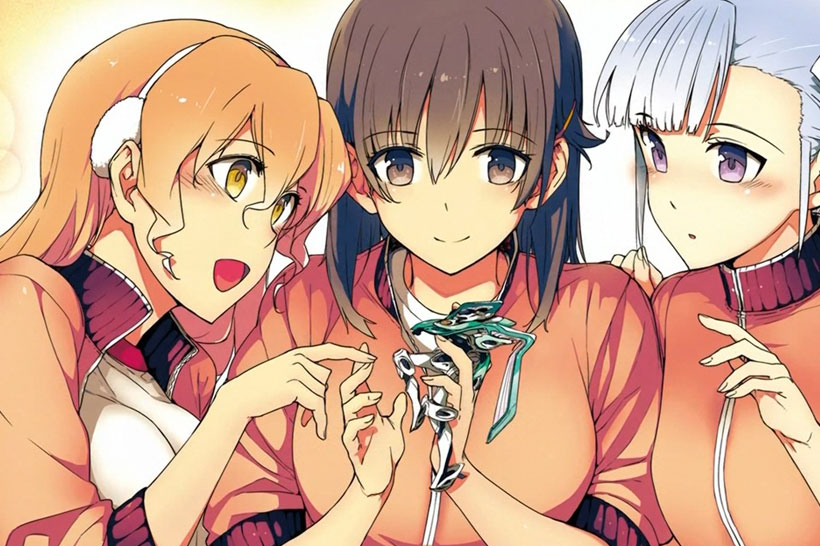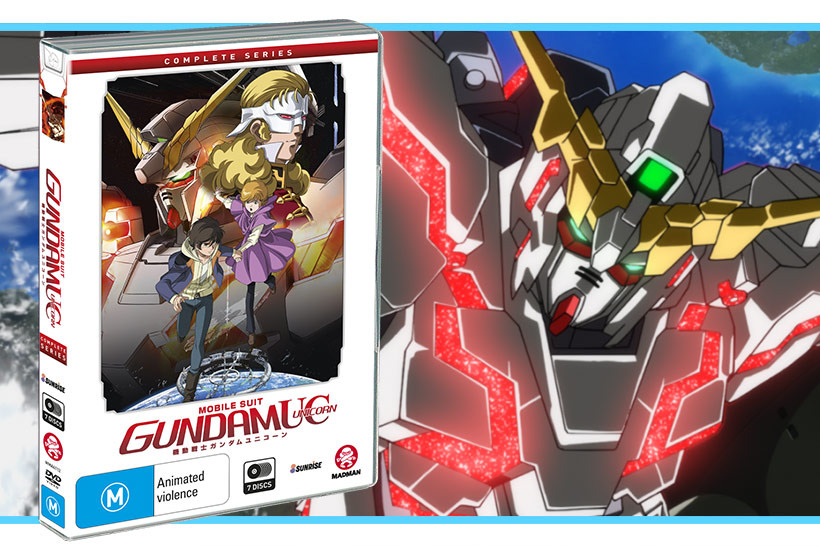Aquarion is a mecha series set in a post-apocalyptic world where the remnants of humanity are harvested by Shadow Angels as an energy source, a little like The War of the Worlds. The Shadow Angels are immortal winged creatures who are vastly more powerful than humans and possess advanced mystical technology. They have awoken after 12,000 years and are decimating the human population with giant monster-robots called Cherubim. The only thing that can stand up to them is the giant robot Aquarion, powered by the combined souls of three pilots and capable of transforming into multiple mech configurations. The organisation DEAVA is dedicated to training these pilots as a last defence for humanity against the Shadow Angels.
The series follows three main characters, Apollo, Silvia and Sirius, though all of the side characters play important parts in the story as well. Apollo is an orphan who lived scavenging on the streets, but is rumoured to be the reincarnation of Solar Wing, the Shadow Angel Apollonius. A key part of the story is the legend that 12,000 years ago Apollonius fell in love with the human warrior Seliane, and together they freed the humans from the Shadow Angels using the robot Aquarion.

Seliane is now reincarnated as Silvia, and Apollo and Silvia gradually recover memories of their past lives and love for each other. Sirius is the brother of Silvia and a fellow pilot and ‘rival’ of Apollo, previously believed to be the ‘true’ reincarnation of Solar Wing, and provides a main point of conflict in the story through his feelings of jealousy and hatred. Together Apollo, Silvia and Sirius – along with the rest of DEAVA – must defeat the Shadow Angels once again to end the ravages of humanity and save the world.
Aquarion (also known as Genesis of Aquarion) was written and directed by Shoji Kawamori, the creator of series such as The Super Dimension Fortress Macross, Earth Maiden Arjuna, and Vision of Escaflowne, and it has the same beautiful animation with a distinctive art style and creativity. It shares some ubiquitous themes with Neon Genesis: Evangelion such as mech pilots synching with their craft, angels, teenage boys getting in the robot, et cetera. However, from the very first episode Aquarion jumps straight into the realms of WTF rather than leaving it for the last few episodes. That’s not to say that the last few episodes aren’t relatively bizarre but by the time you reach them you’re already on board for the weird ride.
I compared Aquarion to Evangelion but it would be more accurate to describe it as a tribute to the iconic Japanese Super Robot TV shows of the 70s and 80s such as Voltron, Getter Robo or Mazinger Z. I admit I’m not the most familiar with this genre of giant robots fighting enemies-of-the-week, but even I could pick up nostalgic themes and parallels with more modern and Western-accessible Super Sentai shows like the mash-up adaptation that is Power Rangers. So rather than being an impenetrable mass of military jargon and detailed technological descriptions like mecha series such as Gundam, Aquarion was very easy to understand and get into.

But let’s get back to the WTF factor, because that is a large part of what made Aquarion… well, memorable to say the least. If someone asked me to describe the series in three words, I’d have to say, “Orgasmic mech transformations.” The anime is rated M for animated violence, but there is an overt sexual overtone to basically everything. Every time the three mech pilots merge their crafts into Aquarion, they’re shown naked together with ecstatic faces moaning or saying things like, “I’m tingling all over!” There’s even a foot fetishist episode, and an episode where they explode an enemy Cherubim’s heart with orgasm power. What?!
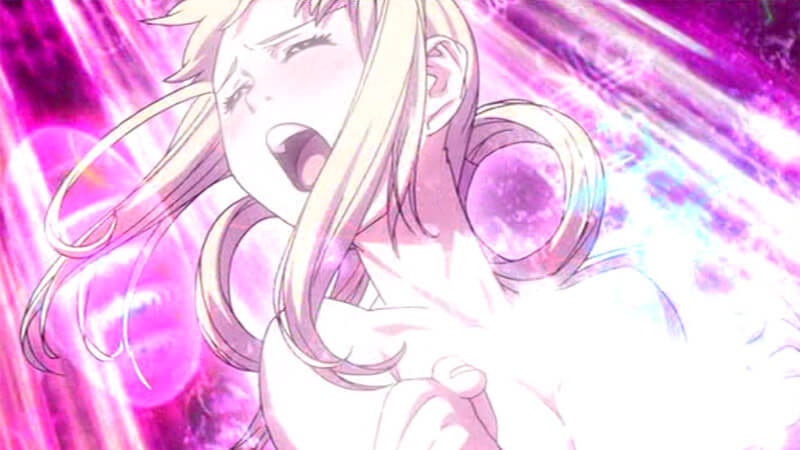
Additionally, the characters seemed prone to sudden freak-outs and abrupt mental breakdowns, but then were back to normal five seconds later. These reactions were usually so far removed from the immediate context that they were laughable even though it was meant to be dramatic. For example, early on in the series the Shadow Angel Toma confesses his love for Apollo(nius), but the over the top reaction was so ridiculous and melodramatic that I actually laughed out loud.

And I just have to give a special mention of how ridiculous Sirius is as the bishounen ‘prince’ type who stands around in rose gardens with a sword and recites poetry to the moon. He’s supposed to be dramatic, I guess, but just ends up being absolutely absurd. Once you get on board for the wacky ride Aquarion is pretty enjoyable, but unfortunately it’s one of those series that suffers heavily from the casual use of incest as both a fetishistic ploy and a key plot point. I find the theme distasteful and wouldn’t have picked up the series if I’d known it featured so heavily. The setting and story would have been interesting and enjoyable if not for the above issue, but I do wish they’d shown more of the ravaged world itself and how the people lived in it.
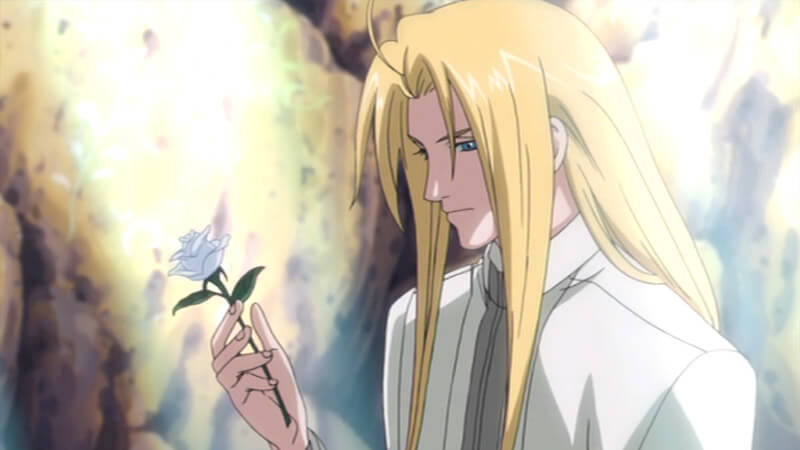
The series originally aired in Japan in 2005 and features CG mechs, but the animation has stood the test of time very well and still looks great. It doesn’t look out of place when surrounded by 2D animation. The Cherubim were especially cool, moving fluidly in battle like alien dancers. The environments look alien and the Shadow Angel city Atlandia is rendered especially creatively.
The DVD collection has a lot of extras packed into it, such as interviews and music videos. The first disc has 30 minutes worth of extras alone, and the silent short movie on the last disc is especially worth watching, as it gives an insight into the production process with cute retro charm.
Overall if it weren’t for the distasteful themes I’d have recommended Aquarion to readers purely on wacky value alone. It’s ridiculous but enjoyable, easy to understand and beautiful. I was surprisingly on board with the story by the end, but unfortunately the disagreeable content was just too prominent for me to really be able to say I liked the series. There are two Aquarion OVA sequels as well as a series sequel, also available from Madman Entertainment, called Aquarion Evol which aired in 2012 as a continuation of the story 12,000 years later. I’d likely check out the sequels to satisfy my curiosity but wouldn’t be averse to giving them a miss if they end up having the same themes as the original.
A review copy was provided by Madman Entertainment to the author for the purpose of this review.

